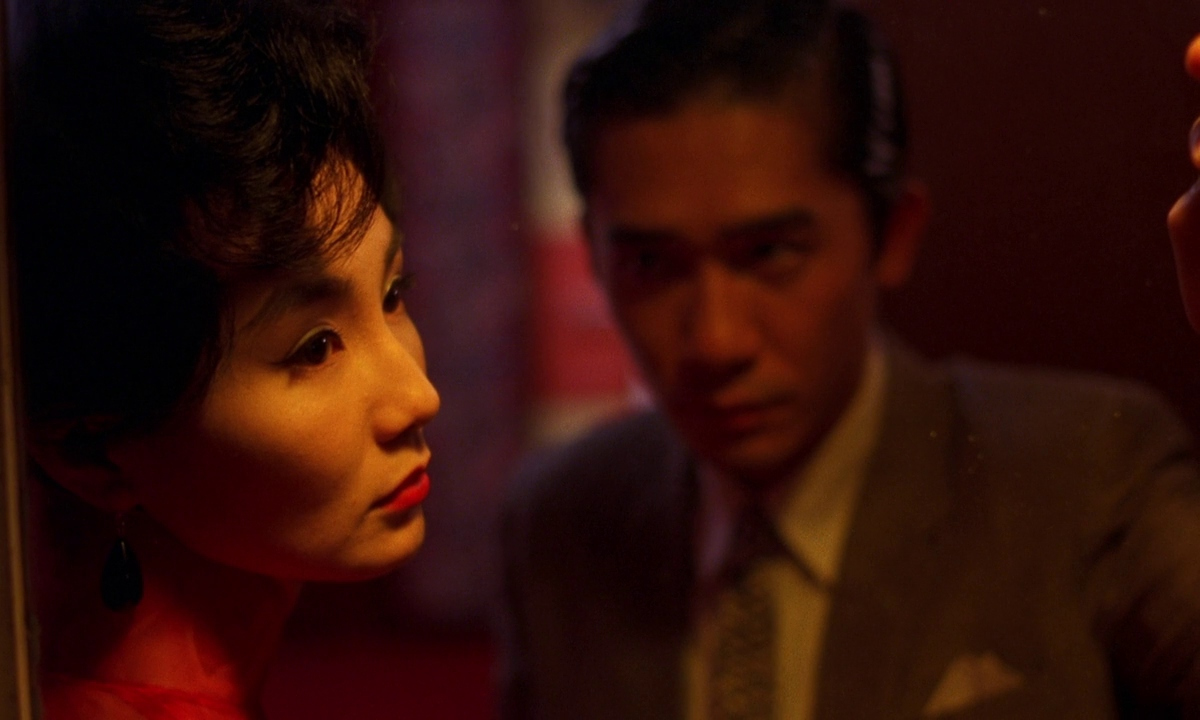In The Mood For Love is a 2000 film directed by Hong Kong auteur Wong Kar-Wai, and probably remains his most famous/recognizable work, and for good reason. It's the story of two neighbors, Mr. Chow and Mrs. Chan, played by Tony Leung and Maggie Cheung respectively, who begin to fall in love with each other once they learn of their partners' infidelity. I'll go more into the plot below, but for people reading that don't want it spoiled, know that it is more complex than that simple description, as the line between what emotions are real and what aren't becomes blurred to the point of being inscrutable. It's an exercise in subtlety and mood that's pitch perfect and thematically rich, and I already know that I'm going to write too many words about it but ***, it's really friggin good. It's a slow burn though, and I can understand someone not necessarily having the patience for a movie like it, but the sheer artistry on display should be enough on it's own to warrant a viewing.
Alright, now into the nitty gritty. Spoilers ahead.

I'm going to start with the director. Wong Kar-Wai is one of the more recognizable directors to come out of Hong Kong, with a cinematic style completely his own. I was first introduced to him in a film history class this past semester with 1994's Chungking Express, also a romantic story starring Tony Leung, although considerably lighter and more fast paced than Love. I loved it when I saw it (I highly recommend it as well), and became interested in Wong's other work, which is what led me here. The reason for this rough introduction is because I think Wong is a brilliant director, and his work with Love is completely masterful. From the beautifully understated performances of Leung and Cheung, to the cinematography of frequent collaborator Christopher Doyle, to smaller details like the staging of the actors and the vibrant, gorgeous color palette, it's a work of incredible restraint and beauty. There's a deep, slow rhythm to every camera movement and every scene (sometimes literally, the movie goes into slow motion often), but the movie is also punctuated with moments of rapid, disorienting editing. It gives the whole film an impression of slowly building desire with emotions boiling over spontaneously.
As I alluded to earlier, the story is much more complex and thematically deep than simply an extramarital love story. Following an incredible scene where Chow and Chan put the pieces together that their spouses (who's faces are never seen) are cheating on them with each other, they start seeing each other more, and start to try and roleplay as each other's spouse, trying to learn and behave how they think they would be behaving in their affair. It starts as sort of a perverse, masochistic game, but somewhere down the line it stops being pretend. They do have intense feelings for one another, but they can never give in to them. We'll never be like them, they say. They cling to a moral high ground, keeping them focused, but at the price of repressing their true emotions and passions.They're stuck in a painful stasis, unable to move things further because of an honorable imperative, and unable to end things, because ending it would admit that something started in the first place. It's protracted heartbreak in movie form, and it's intensely affecting. After Chow gets an offer to work in Singapore, he accepts, leaving Chan behind in Hong Kong, and the rest of the movie tracks the near misses they have with each other over the next several years, culminating in Chow whispering his secret feelings and bottled up desires in a hole at Angkor Wat in a poignant, visually stunning finale.

So much moreso than other romantic stories, Love deals explicitly with the feelings of desire and longing, and the denial of those feelings. It's a film about those subtle moments in everyday life - those moments of accidental eye contact, of seeing the same person at the same place at the same time every day, of just *barely* touching when you walk past someone - and what deeper promise those moments hold, should we choose to act on them. In The Mood For Love is a modern masterpiece, easily one of the best movies of the new millennium. I could really go on and on about it (I didn't even mention the fantastic soundtrack!), but it's getting late and I'm getting tired. For the record, I'm a big fan of the Criterion Collection, so that's how I got a copy of it, but If this review piqued your interest, I can't recommend watching it enough.